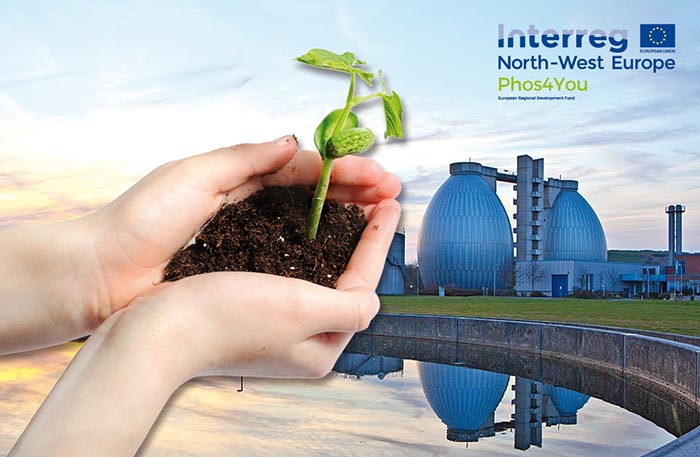Phos4You
Case Study
Phos4You - Water Quality Innovation to Build a More Circular P Economy. A NW Europe Interreg Project involving our Environmental Research Institute.
Phosphate rock is a finite resource on Earth - likely to become rare and expensive within the next 30 years. Recently, the EU acknowledged this, adding it to its list of Critical Raw Materials (in 2014).
Phosphorus (P) is essential for ALL living organisms, but, is a particularly valuable resource for the world’s agricultural sector. In 2016, approximately 90% of the 261 million tons of rock phosphate mined worldwide was used as fertiliser and in animal feed.
Despite this, agricultural P is largely “wasted” globally. A high proportion of that applied to land enters river via run-off; or, once taken up by plants and then consumed by humans, waste P simply enters the wastewater system and is lost to rivers and ultimately the sea, or, enters landfill as dewatered wastewater treatment sludge.
As such, there is now an urgent need to recover P from wastewater or dewatered solid sludge. To address this challenge, Phos4You was awarded €10.8 million to undertake a 4 year project to reduce the EU's dependence on imported phosphate rock. It is doing this by demonstrating innovative P-recovery technologies under real-life conditions.
Our Environmental Research Institute, a partner in this project, will focus on small scale solutions for rural areas. Embracing the circular economy, this international partnership project (involving 7 EU countries) brings together universities, industry, national authorities, fertiliser manufacturers and policy makers. ERI is undertaking quality assessment of new recovered P products, assessing the potential of small-scale adsorption units to recover P, and, engaging with stakeholders to establish uptake pathways for P recovery technologies in rural areas.
For further information see http://www.nweurope.eu/projects/project-search/phos4you-phosphorus-recovery-from-waste-water-for-your-life/#tab-1, or contact Barbara.Bremner@uhi.ac.uk or Mark.Taggart@uhi.ac.uk.
